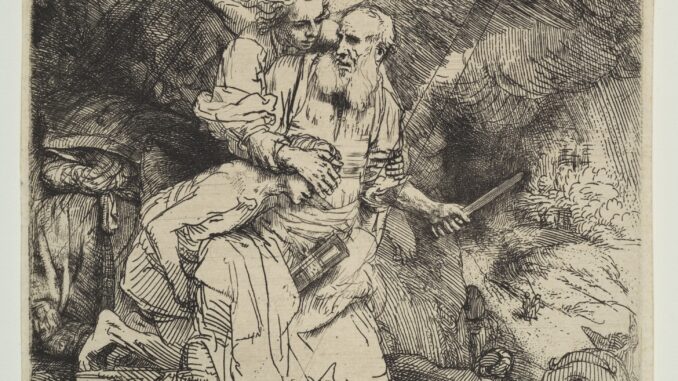
This series explores the Ten Commandments through the words and admonishments of Arthur Pink.
“And God spake all these words, saying, I am the Lord thy God, which have brought thee out of the land of Egypt, out of the house of bondage.” This Preface to the Ten Commandments is written in the custom of kings and governors who prefix their names and titles before their edicts.
“Thou shalt have no other gods before me” is the first Commandment in Exodus 2:3. Its individual focus addressed to each person has the force of, you shall own, possess, seek, desire, love or worship none other. No “other gods”; they are called such not because they are so, either by nature or by office (Psalm 82:6), but because the corrupt hearts of men make and esteem them such–as in “whose God is their belly” (Philippians 3:19).
This first Commandment imposes a positive duty on each of us. Briefly stated, you shall choose, worship and serve God, and Him only. Being who He is — your Maker and Supreme being — He admits of no rival and none can vie with Him. This fact reveals the reasonableness of this demand and the madness of contravening it. This commandment requires from us a disposition and conduct suited to the relation in which we stand to the Lord as our God. It requires we have a love for Him stronger than all other affections, that we take Him for our highest portion, that we serve and obey Him supremely. It requires that all those services and acts of worship which we render unto the true God be made with the utmost sincerity and devotion, excluding negligence on the one hand and hypocrisy on the other.
In pointing out the duties required by this Commandment we cannot do better than to quote the Westminster Confession of Faith. “The moral law does forever bind all, as well justified persons as others, to the obedience thereof; and that, not only in regard of the matter contained in it, but also in respect of the authority of God the Creator, who gave it. Neither does Christ, in the Gospel, any way dissolve, but much strengthen this obligation.” Scripture tells we must know and acknowledge God to be the only true God, and our God and to worship and glorify Him accordingly by thinking, meditating, remembering, honoring, adoring, choosing, loving, desiring, fearing, believing, and trusting Him.
Those duties may be summarized in these chief ones. First, the diligent and lifelong seeking of a fuller knowledge of God as He is revealed in His Word and works. We cannot worship an unknown God. Second, the loving of God with all our being, which consists of an earnest seeking of Him and a holy zeal for Him. Third, the fearing of God, which consists of an awe of his majesty, supreme reverence for His authority, and a desire for His glory. The love of God is the motive of obedience and the fear of God is the great deterrent of disobedience. Fourth, the worshiping of God according to His appointments, the principal aids to which are these: study of and meditation upon the Word, prayer, and putting into practice what we are taught.
“Thou shalt have no other gods before me.” That is, you shall not give unto anyone or anything in Heaven or on earth that inward heart affiance, loving veneration, and dependence that is due only to the true God; you shall not transfer to another that which belongs alone unto Him. Nor must we attempt to divide them between God and another, for no man can serve two masters. The great sins forbidden by this Commandment are these: willful ignorance of God, atheism or the denial of God; idolatry or the setting up of false and fictitious gods; disobedience and self-will or the open defiance of God; and setting of our hearts and minds upon other objects.
They are idolaters and transgressors of this first commandment who manufacture a “God” as a figment of their own minds. The Apostle Paul speaks of “covetousness which is idolatry” in Colossians 3:5, and, by impartial reasoning, so are all immoderate desires. That object to which we render those desires and services which are due alone to the Lord is our “God,” whether it be self, gold, fame, pleasure, or friends. What is your God? To what is your life devoted?
Arthur W. Pink, born in Nottingham, England, in 1886, pastored churches in Colorado, California, Kentucky, and South Carolina. He moved to Sydney, Australia, and then returned to England in 1934. Pink relocated to Lewis, Scotland, in 1940 and remained there until his death in 1952 at the age of 66.



